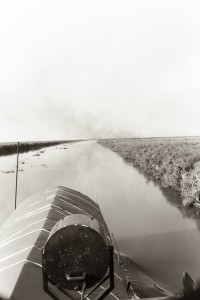Apparently, no book is complete these days without an accompanying video. Here’s mine. I hope you like it.
The Black Nile – August 12 from Viking Penguin from DAN MORRISON on Vimeo.

Journalist and author of The Prince and the Poisoner
Apparently, no book is complete these days without an accompanying video. Here’s mine. I hope you like it.
The Black Nile – August 12 from Viking Penguin from DAN MORRISON on Vimeo.
 Part travelogue, part crazy adventure tale, part political reportage: Veteran foreign correspondent Morrison and a buddy build a boat and paddle up the Nile River through Uganda, Sudan and Egypt. Morrison’s African river journey is a paradoxical mixture of awe-inspiring discoveries, eye-opening human interactions and perilous escapes. — Chuck Leddy, the Minneapolis Star-Tribune
Part travelogue, part crazy adventure tale, part political reportage: Veteran foreign correspondent Morrison and a buddy build a boat and paddle up the Nile River through Uganda, Sudan and Egypt. Morrison’s African river journey is a paradoxical mixture of awe-inspiring discoveries, eye-opening human interactions and perilous escapes. — Chuck Leddy, the Minneapolis Star-Tribune
My newest piece, a bit truncated, on the opinion pages of today’s New York Daily News. Apparently I’m keeping Charles Krauthammer’s seat warm.
 In a rare spot of good news to come out of Sudan’s elections, it appears the former rebels of the Sudan People’s Liberation Movement have won the governorship of Blue Nile state. That is to say, the southern rebels, competing in a rigged election, were victorious in a northern state .
In a rare spot of good news to come out of Sudan’s elections, it appears the former rebels of the Sudan People’s Liberation Movement have won the governorship of Blue Nile state. That is to say, the southern rebels, competing in a rigged election, were victorious in a northern state .
It’s the SPLM that’s made the announcement, [Update: It’s now official.] declaring that the National Election Commission has called the race for their candidate, Malik Agar. If this holds up – if the NEC, which has proved itself to be an extension of the ruling National Congress Party, publicly declares Malik Agar the winner – it will stand as the greatest reversal of what has proven to be a multi-multi-million-dollar sham election. Continue reading “Sudan: A Rare Fix That Wasn’t”
Here’s a link to the Carter Center’s 21-page preliminary statement on Sudan’s elections. I breezed through the bullets, and the center’s key points seem to be:
1) It wasn’t a fair election.
2) Still, the exercise was a necessary one to fulfill provisions of the Comprehensive Peace Agreement, thereby making it legal to hold next year’s (dis)unity referendum, in which the south will vote to leave Sudan.
3) It was good practice. (For the next unfair election?)
and, importantly
4) Southerners didn’t get a fair shake either, thanks to intimidation by the Sudan People’s Liberation Army.
It seems accurate based on my reading and interviews. The language is neutral, not condemnatory, which will annoy some. And it further confirms what a lousy deal this has been for so many people working towards real pluralism and democracy in Sudan.
My guess is there’s probably enough praise in the document to allow the Bashir regime to declare victory, despite a similar statement from the European Union.
For details, read after the jump, and by all means check the excellent reporting at the Sudan Tribune and Radio Dabanga — and please do let me know what you think.
Continue reading “Sudan: The Carter Center’s Preliminary Statement”
Four ways of looking at Sudan’s national elections
 Sudan’s first multiparty elections in 24 years started yesterday in an atmosphere of anger, hope and confusion. The last election, in 1986, followed a people’s uprising that removed a military dictator. How times change. Today another military dictator – Field Marshal Omar Hassan al-Bashir, an indicted war criminal — is Sudan’s leading candidate for president.
Sudan’s first multiparty elections in 24 years started yesterday in an atmosphere of anger, hope and confusion. The last election, in 1986, followed a people’s uprising that removed a military dictator. How times change. Today another military dictator – Field Marshal Omar Hassan al-Bashir, an indicted war criminal — is Sudan’s leading candidate for president.
Befitting Africa’s biggest, and perhaps most complicated, country, there are several ways of looking at Sudan’s elections: Continue reading “A Travesty, a Logistical Nightmare, Irrelevant, Democracy”
Here’s my interview with Jessica Mudditt of the excellent Five Books. Continue reading “Five Books on the Nile”

Who is the mystery Londoner who helps move guns to the Islamist-led government of Sudan and invests the regime’s money in Europe? Continue reading “An international man of anonymity.”